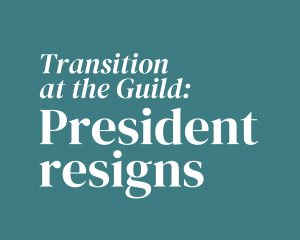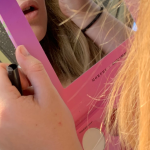 I was skeptical when Tom, my co-editor, handed me Atomic Habits by James Clear. I like to think of myself as a decently organised and mildly habitual person. I automate savings, I budget, I attend (most) of my weekly classes. I also think of myself as someone who doesn’t really like self-help books. The whole, “revolutionise your life,” “change everything,” “sell everything you own and live in an empty shoebox to save money” just doesn’t really do anything for me.
I was skeptical when Tom, my co-editor, handed me Atomic Habits by James Clear. I like to think of myself as a decently organised and mildly habitual person. I automate savings, I budget, I attend (most) of my weekly classes. I also think of myself as someone who doesn’t really like self-help books. The whole, “revolutionise your life,” “change everything,” “sell everything you own and live in an empty shoebox to save money” just doesn’t really do anything for me.
But, Atomic Habits seemed approachable. The book asks you to throw away what you know about self-development and just marginally improve yourself. You don’t have to change everything, but you do have to make a couple of tiny changes to break moulds and make new ones. The crux of the book is this: small changes make a big difference. So, as someone with a healthy dose of skepticism and doubt, I invested in this book and agreed to see how it would change my lifestyle.
I think my highest praise of the book is how simple the language is within it. It’s not more verbose than it needs to be and Clear doesn’t try to write circles around you. He just writes what he needs to say. The book starts out with a little bit of background on why tiny habitual changes are effective, and Clear’s story of developing this method.
In the introduction, Clear writes that, “it is a simple two-step process: 1. Decide the type of person you want to be. 2. Prove it to yourself with small wins.”
On page 39, those three sentences anchored me into this book. I thought about part one, what kind of person I wanted to be, and what that meant. This was my answer.
I want to be the type of person who:
- Explores their creative practice
- Makes time for their friends
- Builds a strong financial foundation
- Creates inviting spaces
And then, I worked on finding what those kinds of people would do.
A creative person would work on their skill every day.
A good friend would take time to show up for the people they care about.
A financially stable person would create long-term money strategies.
A person with an inviting space would take pride in their home.
This was my foundation, and for the rest of the book, these goals are taken through four laws, make it obvious, make it attractive, make it easy, make it satisfying. The inverse of these steps are the way to crack a bad habit, so in make it obvious, the way to get rid of a bad habit is to make it invisible. Each chapter explains the reasoning behind each law and how it works, as well as providing links to free worksheets on Clear’s website. I won’t go through the book play by play (I think there would be some copyright issues there) but I will share some of my outcomes and changes I made based on Clear’s four laws.
Make it obvious: I started putting my friends’ birthdays in my calendar, and the events they were attending that were important to them. That way in my calendar, I knew what was coming up and could slot myself in. In the past week, I found an hour to go to a market my friends were working, and an exhibition my other friends were in. It was easy because I put it right in front of me.
Make it attractive: I’m a sharer, and Instagram is one of my favourite platforms. I used this to keep working on my creative practice, so that I could create something beautiful and share it. It’s a dopamine driven feedback loop: I make something, I work harder because I know I’m going to share it, I share it and get responses and so I feel driven to make more. The simple act of sharing my work stets me up for continued practice in my creative mediums.
Make it easy: With this one, it was about automating. I set up a recurring investment for my Raiz and Spaceship so I could build those accounts without thinking about it. I set up an auto-transfer into an emergency account. I put post notifications on for accounts I wanted to interact with instead of mindless scrolling. I signed up for a new rolling phone plan so I didn’t have to have a data interruption when I had to recharge. I pre-loaded my parking card at work. All of these things took me a total of 15 minutes, but they will save me hours and help me grow my financial stability.
Make it satisfying: I make time to clean and organise my space by inviting people over to it. I know that I am slow to do things for myself alone, so having some friends over incentivised me to make my space at home something I was proud of. The tasks I usually wouldn’t feel motivated to do were easy to accomplish, because I know it would be satisfying to see my space sparking before someone could come over. I suppose I weaponised my pride, but my perceived outcome drove my intention.
Those are just a few of the small changes I’ve made to my mindset and they’re not difficult by any means. But, with a few months of these small changes, my life will be more profoundly impacted, with minimal work. I think this is a book that is good if you’re not feeling particularly lost with your habits and routine, but you want to make them better.
Some other things I like about the book is that Atomic Habits is not productivity-focussed like most self-help books are. It isn’t about becoming a millionaire or a director or a marathon runner. It’s about becoming marginally better, towards what you want to be, not what the book defines as a “good person”. Examples in the book have goals like, be a loving partner, be a considerate friend, be consistent to your running schedule. It’s not about being the best, it’s about being better, and not necessarily in a measurable way.
Finally, this book is good at allowing you to fail. Clear acknowledges that habits are not waterproof, and you will slide. There’s a chapter at the end about recognising when a habit has broken down, which I think is a valuable addition.
Overall, as a skeptic, I was pleasantly surprised. This book didn’t set out to tell me the way I was living my life was wrong, it only presented me with strategies to make it better. It’s an easy read and it’s worth your time.
Atomic Habits is out now from Penguin Random House Australia. Note: The book featured in this review was provided to Glass and Em Readman free of charge by Penguin Random House as a press copy. However, the opinions of the reviewer are their own.







